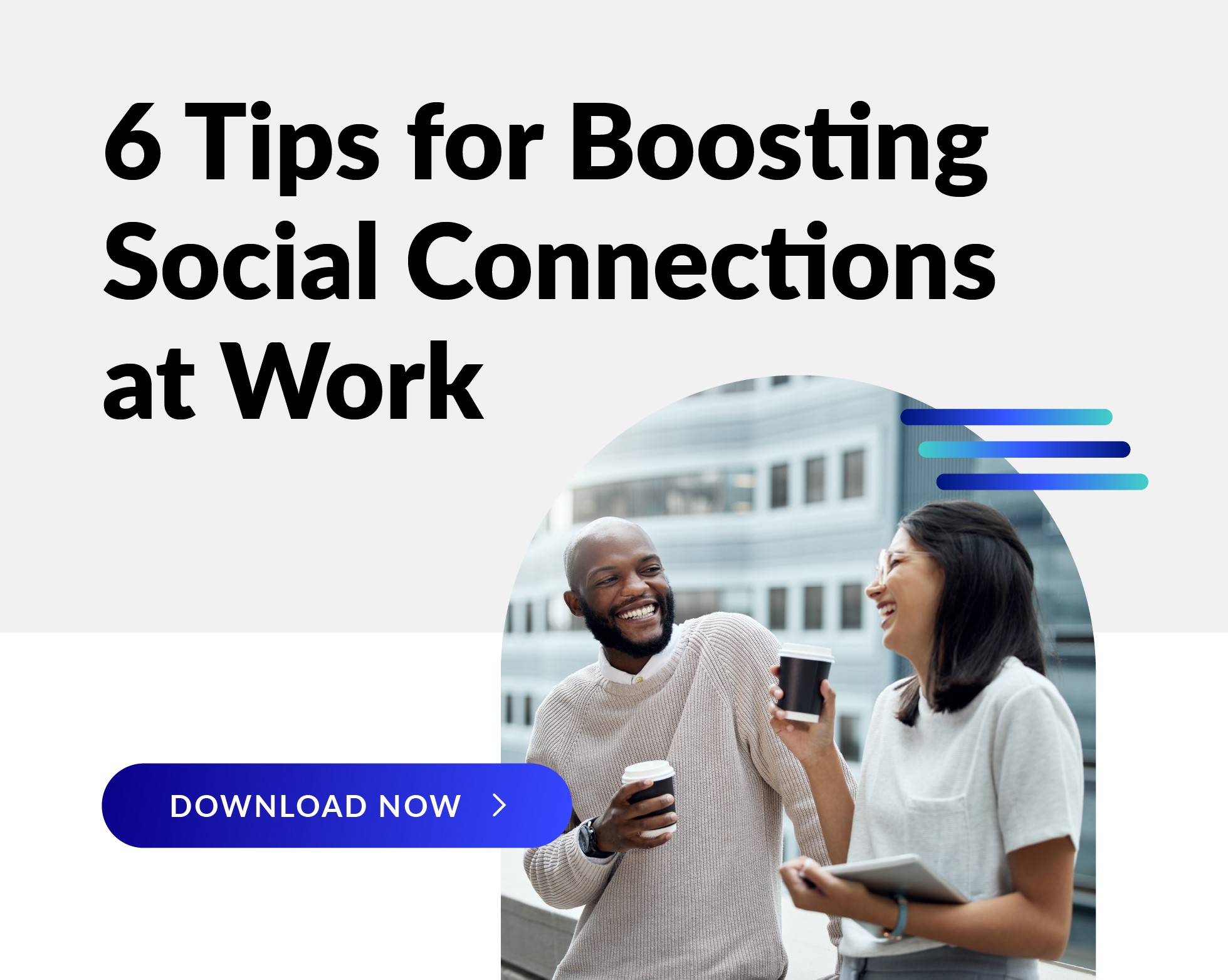 In Part 2 of our Navigating Menopause in the Workplace webinar series, held in conjunction with the HR Exchange Network, our panelists had a candid discussion about the impact of menopause on women in the workplace. We talked about why employers should provide support for menopause, and offered some ideas for how to get started. If you missed it, this week’s blog recaps all the details.
In Part 2 of our Navigating Menopause in the Workplace webinar series, held in conjunction with the HR Exchange Network, our panelists had a candid discussion about the impact of menopause on women in the workplace. We talked about why employers should provide support for menopause, and offered some ideas for how to get started. If you missed it, this week’s blog recaps all the details.
I hope you were able to join us for Part 1 of the Navigating Menopause in the Workplaces series. If not, check out the recording here.
During this week’s menopause webinar, I was joined by three of my WebMD Health Services colleagues to have a real discussion about menopause: Bruce Foyt, VP of Partnerships; Andrea Herron, Head of People; and Stephanie Hanson, Senior Lifestyle Coach. I’m sure it will not go unnoticed that we intentionally included a male in our panel to have an even more informed conversation.
It was great to have each of them share their perspectives on this important issue both from a professional and personal standpoint. As we all acknowledged during the session, having a conversation about a topic that has a lot of stigma attached to it is half the battle. The more we open a dialogue about menopause at work (and actually allow this word to become part of our “corporate dictionary”), the more we’ll be able to provide real solutions to keep women healthy and productive during this part of their life.
What are you seeing and hearing when it comes to menopause, from the perspective of each of your roles?
Andrea: I think the world is continuing to regroup after a huge period of instability. Employers are focused on stabilizing their workforces and doing what they can to retain talent. Given our experience with the pandemic, there’s also now an acknowledgement that it’s impossible to separate the “work” and “home” sides of ourselves. From an HR perspective, we need to focus on the whole person and not just their output at work. So, it makes sense that menopause is starting to become a discussion for employers. After all, women are critical to the very fabric of the workplace and the economy, and we can’t ignore something that impacts every woman at some point in her life.
Stephanie: Our health coaches are hearing a lot of frustration from female participants. Their bodies are going through so much and it’s not making sense to them. What worked in the past in terms of taking care of themselves is no longer working. Many women are struggling with weight gain, sleep issues, brain fog, mental health concerns and hot flashes or night sweats.
Bruce: I talk with lots of clients and have the opportunity to ask them what they think about this issue. Many employers are looking to enhance benefits and resources and they’re starting by surveying employees to assess needs. There are a lot of point solutions out there that address some aspect of women’s health—such as fertility programs, pregnancy support, and even parenting support—but we’re just starting to see solutions that focus squarely on menopause. Many of them are digital solutions at this point, complemented by human interventions like coaching. We’re also seeing some point solutions that not only educate the participant but have an educational component for managers so they can increase their own awareness and understanding.
So often, women just don’t talk about menopause in the workplace because it makes us seem old and like we may not be capable of doing our jobs well. From a male leadership perspective, how do you think we might begin to break down the stigma of menopause in the workplace?
Bruce: As a male leader, I know I must be more educated about menopause. I talk about it a lot with my wife, who is going through menopause, and it’s reminded me that we all need to be more open about discussing it. When you think about it, it’s more than just a workplace issue. Chances are male employees have someone close in their life who may be experiencing symptoms. Understanding more about the topic can help with relationships which, as we all know, can affect mood and performance at work. So, to me, if you’re in a leadership position, you need to increase your awareness and understanding of menopause. Then you need to show you have confidence by openly talking about it at work and encouraging others to do so through role modeling. And you have to back that up with actual support and solutions.
What can employers do to start addressing menopause in the workplace?
Andrea: Increasing education and awareness is how we’re going to be able to break down the stigma of menopause in the workplace and be able to offer real support.
- Offer awareness sessions that are open to the entire population. Provide more detailed sessions for women and targeted training for leaders and managers to help them become more supportive.
- Ensure adequate coverage for medical care related to women’s health issues, such as hormone replacement therapy or reduced copays for women’s health specialists. Talk up these benefits in annual enrollment materials.
- Publicize Employee Assistance Program (EAP) support.
- Support Employee Resource Groups (ERGs) that give women a safe space to talk about menopause. These groups can even appoint “menopause champions” who bring awareness to the broader population.
- Make a list of reasonable accommodations for the workplace—like a desk fan, flexible working hours, breaks to get fresh air, etc.
- Be aware that women of different socioeconomic statuses and cultures experience medical conditions differently, and that is also true for menopause. Make sure your menopause support speaks to all aspects of your population.
What about coaching? How can that type of support help women in menopause?
Stephanie: All of our WebMD lifestyle management Health Coaches have undergone training on supporting women’s hormonal health and menopause. Many times coaching participants will specifically request a female health coach because of their ability to bring their own menopausal experiences into the coaching discussion. Our coaches really counsel women on devoting time to self-care during this phase of life. Self-care isn’t selfish, rather it’s a way to replenish our personal resources so we can continue to care for others. We also make sure to remind coaching participants of the EAPs and other resources at their workplace that can help.
I want to end our time together asking each of you about the risks employers face if they choose to ignore menopause as a workplace issue.
Andrea: As people live and work longer this issue is going to become even more prevalent. By doing something about it now, you’re retaining female talent and keeping the workforce engaged. And this pays dividends—you become known as an organization who cares about its employees and people will want to work for you, not to mention how your customers will view you. I also just want to add that the more female leaders talk about this issue, the more they will be seen as a trusted, safe resource for other women in the organization. I have experienced this first-hand.
Christine: Studies have shown that women who get menopausal support are more willing to recommend their company as a great place to work.
Bruce: I encourage employers not to wait for this—it’s hot right now, so let’s get in front of it and provide the right services and solutions.
Stephanie: The time has come, the time is now, the future is female, and we have to start advocating for concerns women are experiencing or we risk a major part of the workforce becoming disengaged, unproductive and unhappy.
Such great advice from all our panelists today. They helped shed light on the fact that menopause isn’t just a gender or age issue, it’s also an organizational and business issue that workplaces need to seriously consider. Be sure to check out both Part 1 and Part 2 of our Navigating Menopause in the Workplace series. To continue the conversation about creating your menopause-friendly workplace, contact us at connect@webmd.net.



